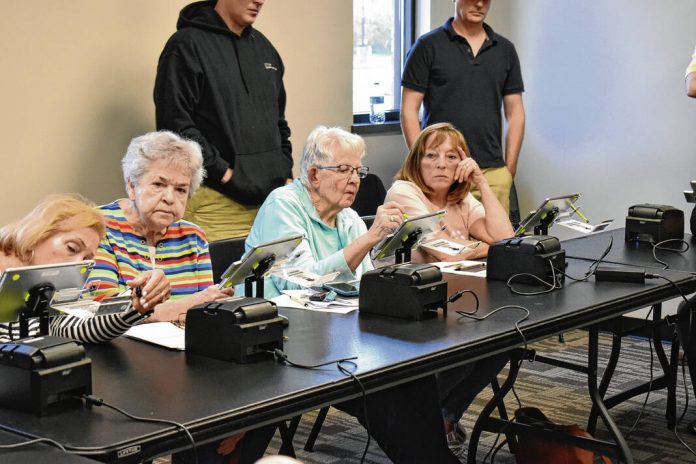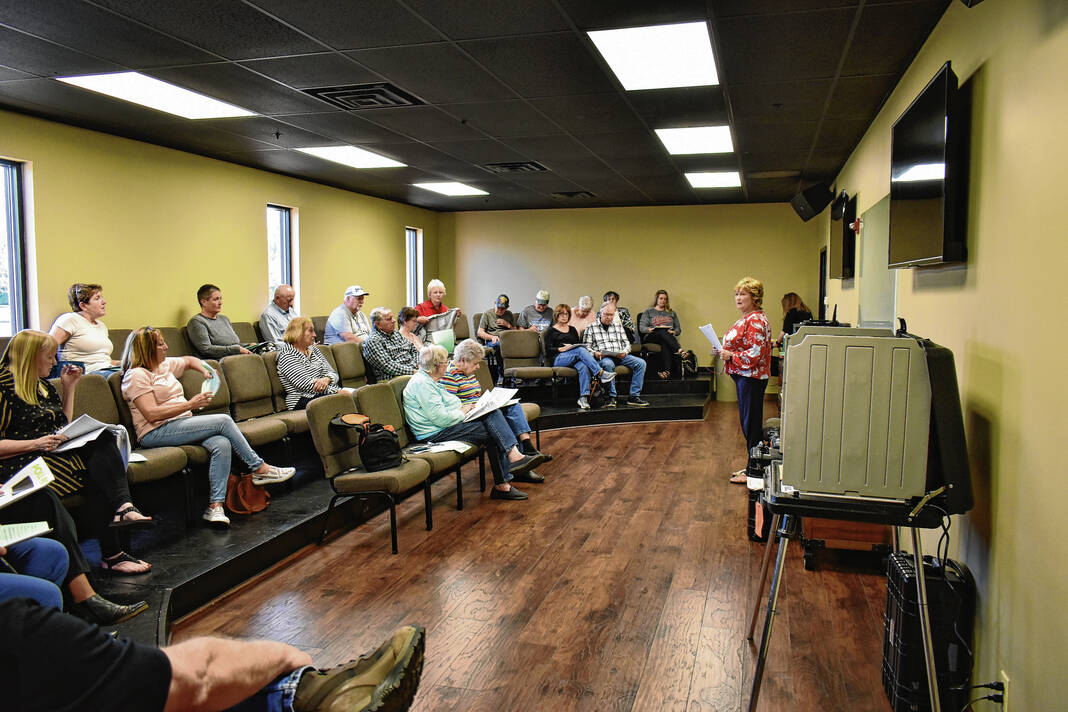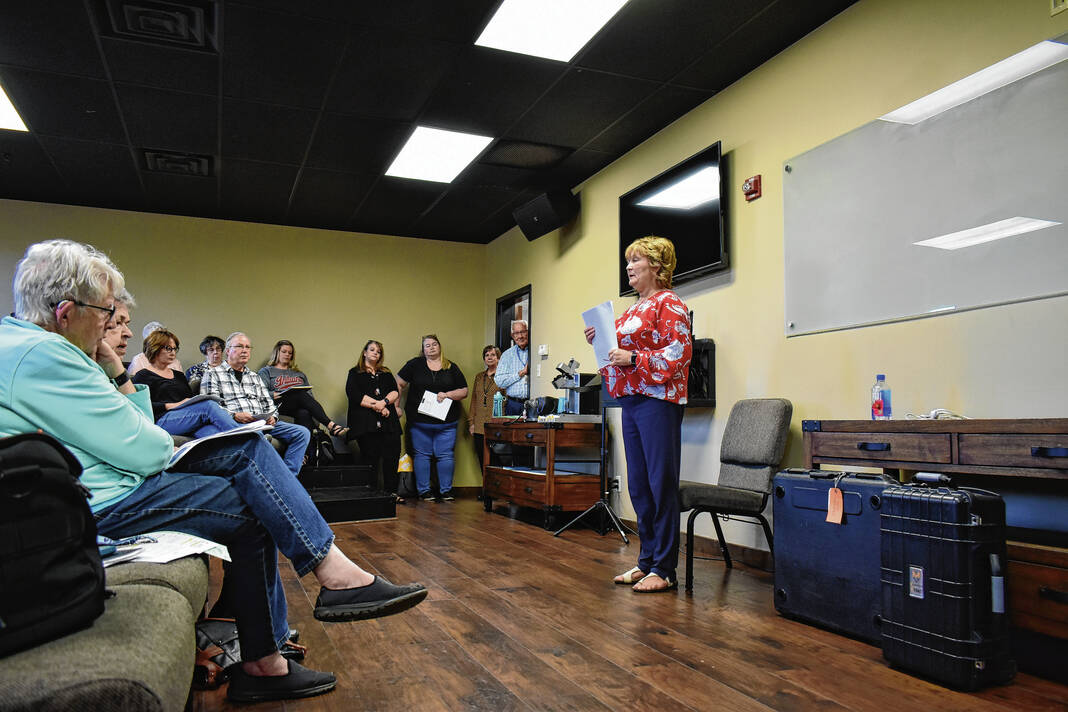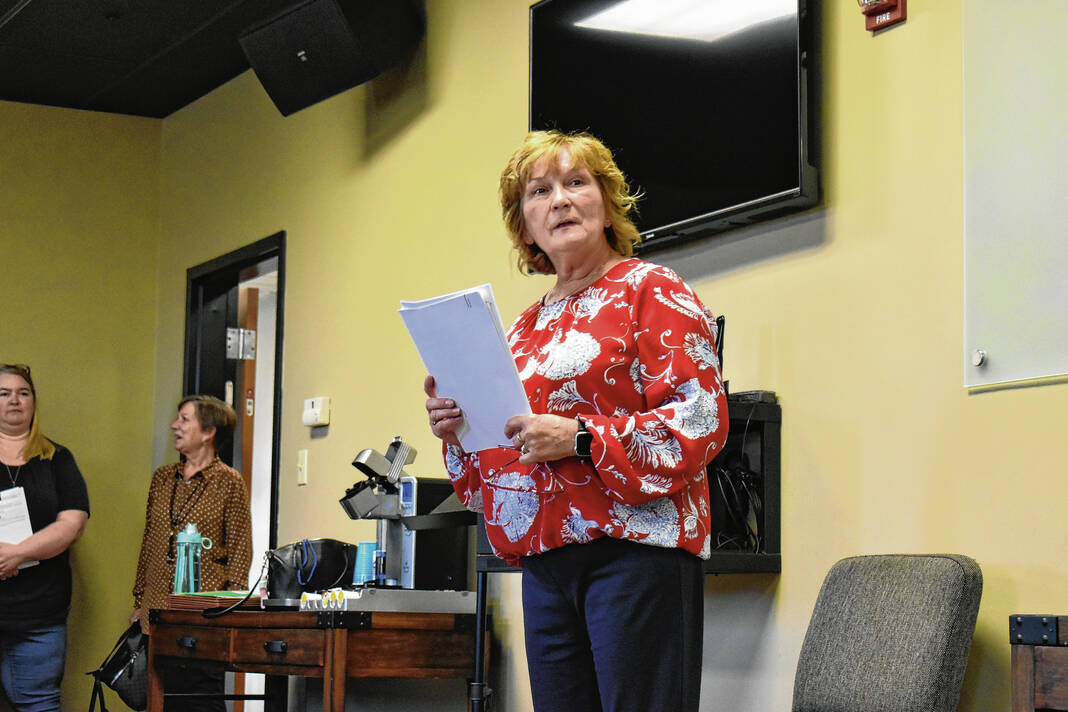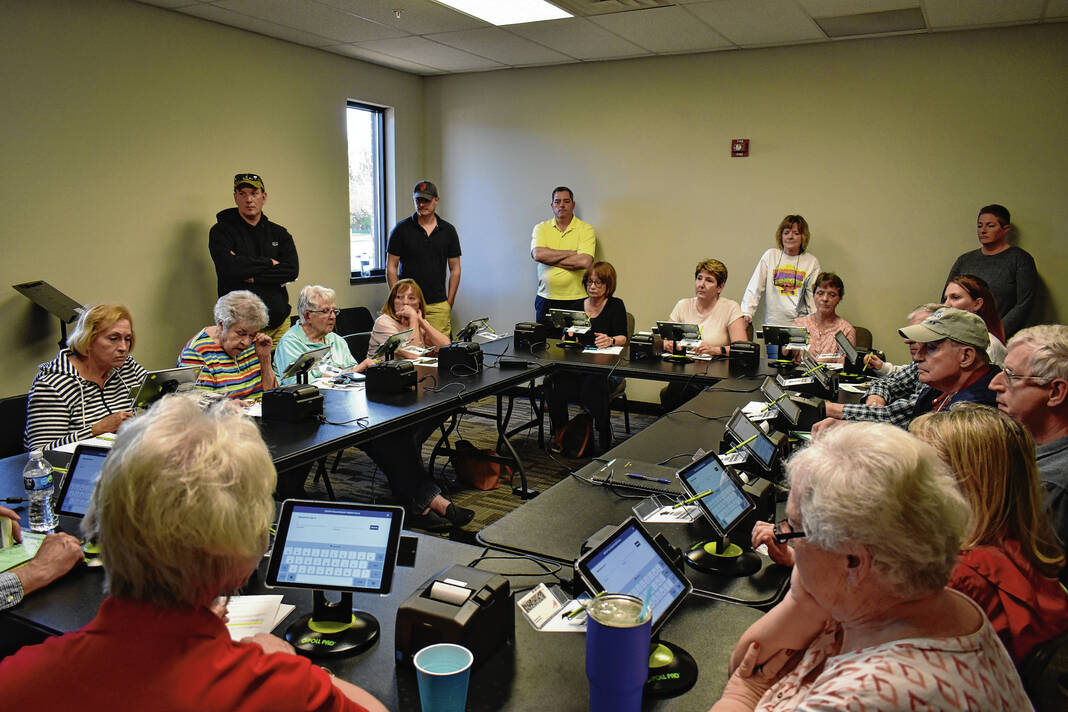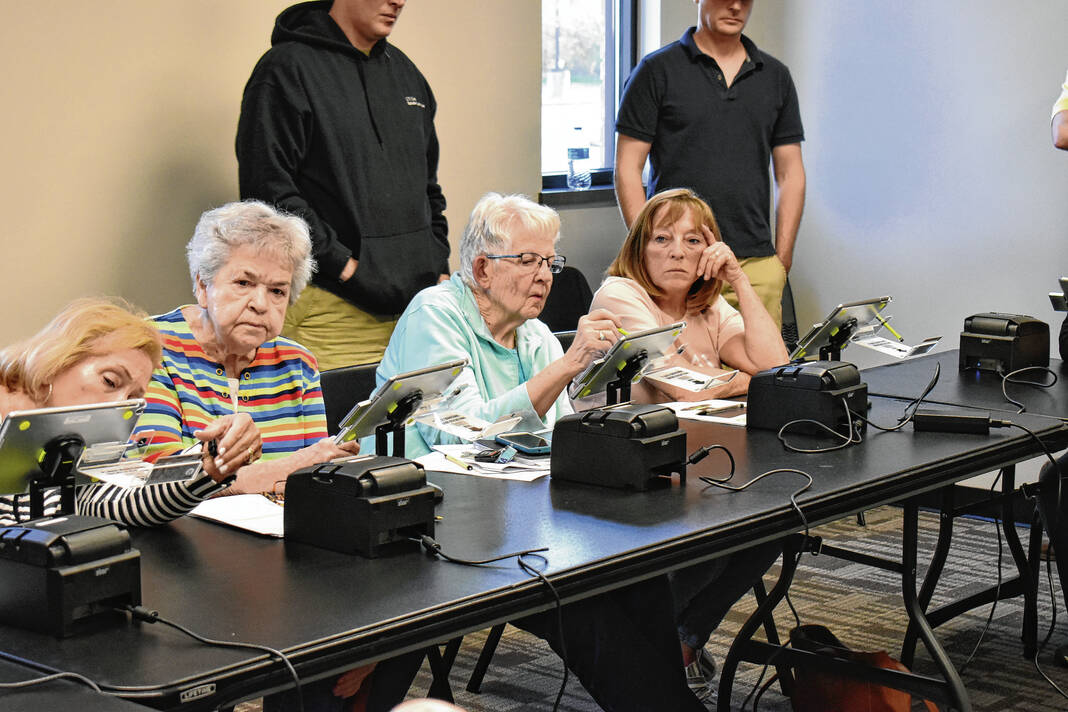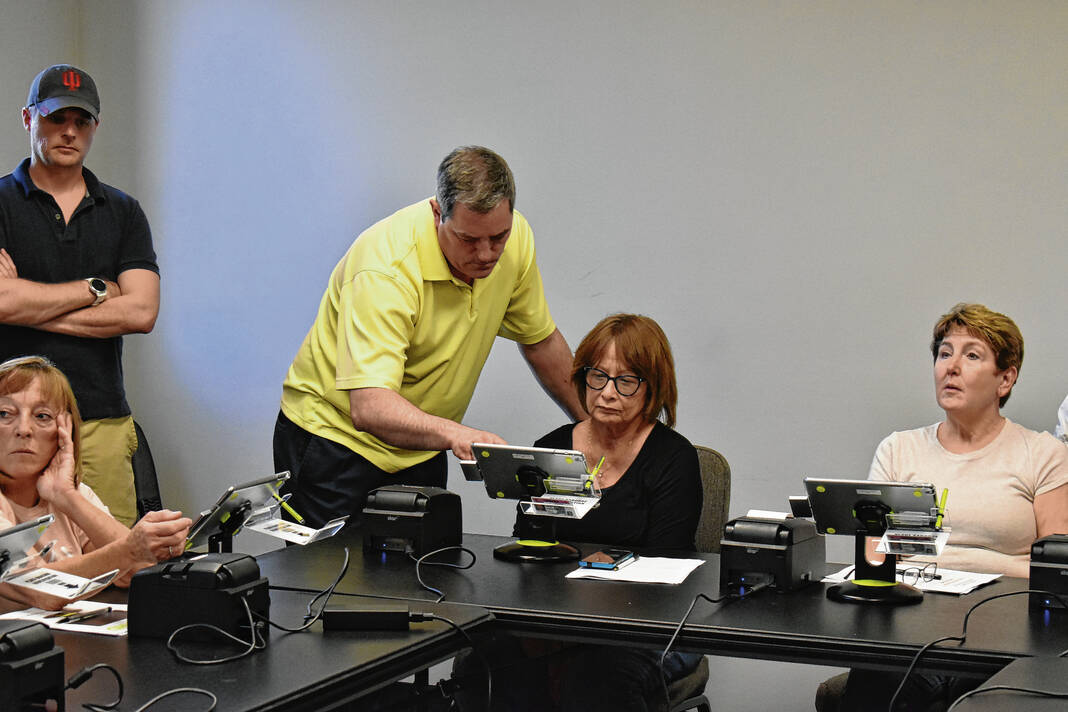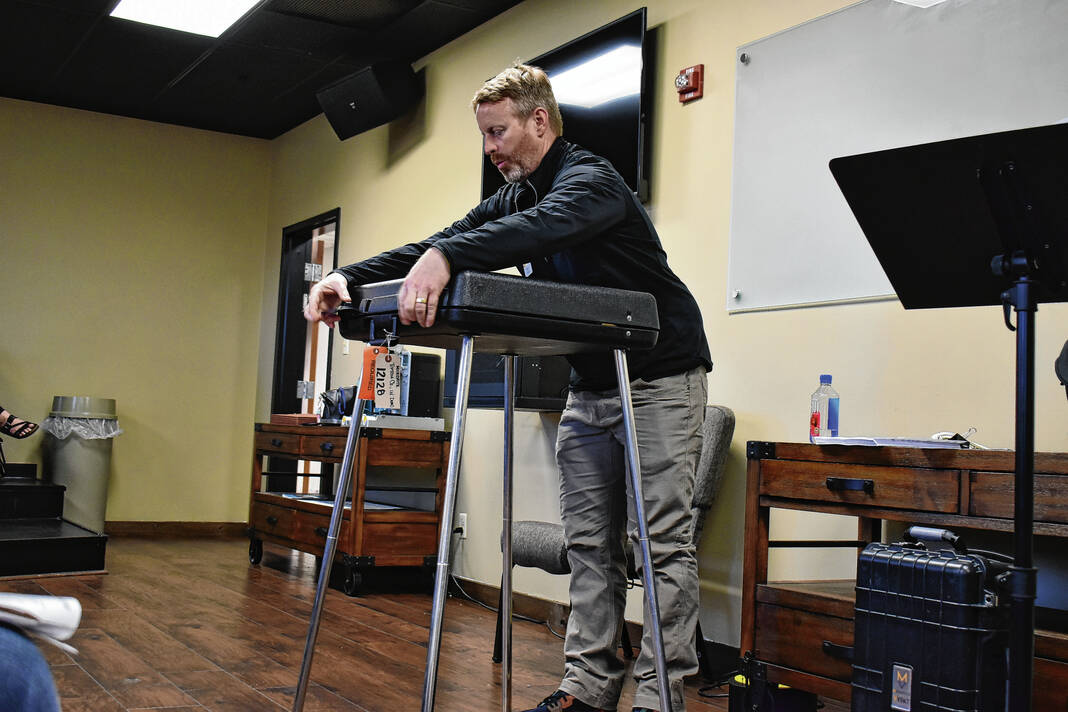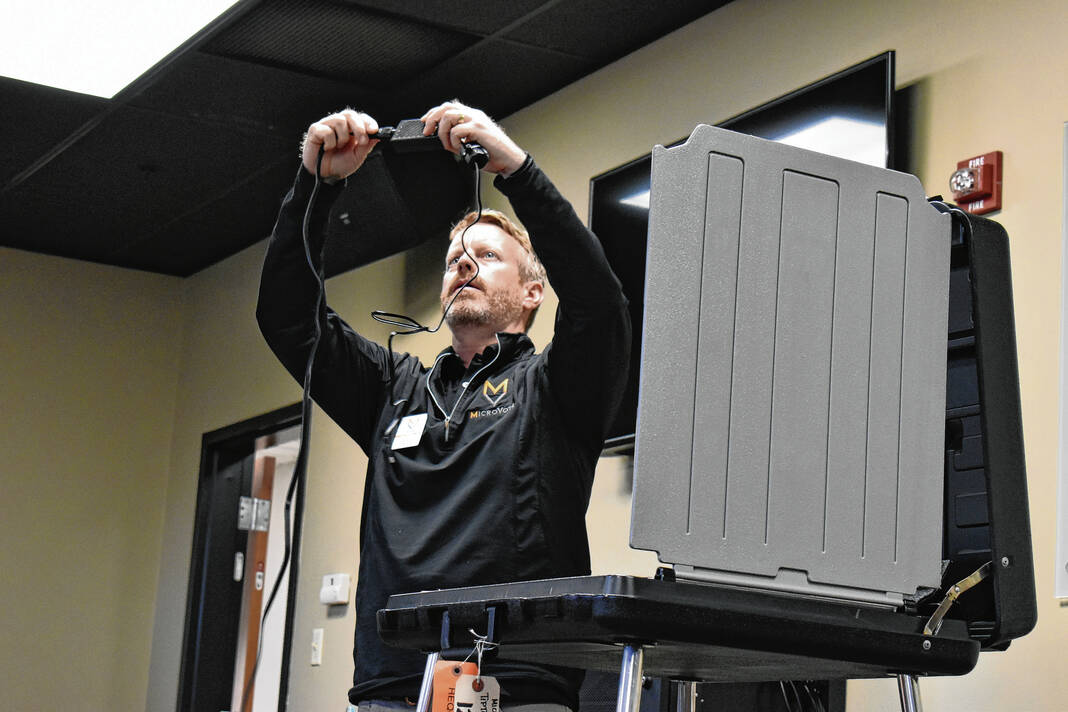For Marcia Whited, being a poll worker is a family affair.
The Greenwood resident has been a poll worker for 15 years and will once again be one for this election. Whited became a poll worker after her husband, who is a poll inspector, recruited her to help him with his team.
“He builds a team of people, workers on his team that he can count on every year, ” she said. “We work well together. We have most, probably 90%, of our team come back and work together every year.”
Whited and her husband were among the nearly 30 people who gathered at Grace Assembly of God Church on April 11 to learn the ins and outs of being a poll worker, though for many, it was just a refresher. Johnson County Clerk Trena McLaughlin saw many familiar faces in the crowd, she said.
During the roughly two-hour training, poll worker trainees learned how to check in poll workers, how to set up election equipment, and got a chance to practice checking in voters themselves. The county hosts five trainings for poll workers, with local political parties spreading the word to those who may be interested in taking part.
Before all that, they learned the basics of poll working, how to answer common questions and learned some of the state’s election laws, including what qualifies as electioneering — taking part actively and energetically in the activities of an election campaign — at and near a polling site.
For example, hats that say “Make America Great Again” are not considered electioneering as it isn’t telling someone to vote for a candidate. However, a shirt that says “Trena McLaughlin for Clerk” would be, McLaughlin said.
Candidates are also not allowed to electioneer within 50 feet from the entrance of the building that is a vote center, she said.
Poll workers are categorized into three roles. The first two are clerks, workers who check in the voters, and judges, workers who activate each voter’s ballot. Oftentimes, the judges and clerks are cross-trained so that they can do both jobs if needed, McLaughlin said.
The third role is the inspector, the poll worker who oversees the vote centers, does the paperwork and comes back to the Johnson County Courthouse with the election equipment after polls close on Election Day, McLaughlin said.
Inspectors were not required to come to the training on April 11, as that day’s training was more oriented for clerks and judges. A smaller training for inspectors took place separately so they could get more in-depth training for possible situations that could come up, she said.
Inspectors are also trained on how to keep the equipment secure. Everything is sealed, and a bipartisan team makes sure all the tapes from the machines are put in a sealed envelope, along with the Poll Pads, which are put in separate sealed envelopes, McLaughlin said.
Once everything is sealed, the inspector and a judge bring it back to the courthouse to verify everything. This includes making sure they have every vote card for every machine, she said.
“If they had eight machines and we have eight vote cards, then we allow them to leave,” McLaughlin said. “We haven’t had, since I’ve been clerk, (an issue).”
One time people had to go back to get a machine because they forgot to do something, but this is the only instance, said both McLaughlin and Kevin Service, the Democratic member of the election board.
Every year, poll worker training is slightly different, as election officials tweak the process to make it better and more efficient. Two things remain the same though: the workers need to be able to do their job when voters show up and they need to know when and who to call if issues arise.
“We give them a lot of information, and they have a lot to remember,” McLaughlin said. “But we also give them lots of instructions, and they can call us anytime for any questions that they have.”
The trainings are also an introduction for poll workers, McLaughlin, the election board and voter registration staff. They often communicate with each other during early voting and on Election Day, she said.
The pay for being a poll worker is not high, but these people aren’t doing it for the pay, McLaughlin said.
“That is their civic duty, and I think that they enjoy it,” she said.
Going into another election as a poll worker, Whited says her favorite part of the job is seeing the people.
“We run into so many people that we know, and it’s none of our business as far as how they’re voting, but we’re glad that they’re out to vote,” Whited said.
Whited encourages everyone to go out to vote as it’s a chance for people who complain about things not being done to put someone in office who will address their complaints, she said.
“How can you complain about things if you don’t bother to engage yourself into taking responsibility to vote for the things and the people that are going to be placing their vote for you?” Whited said.


